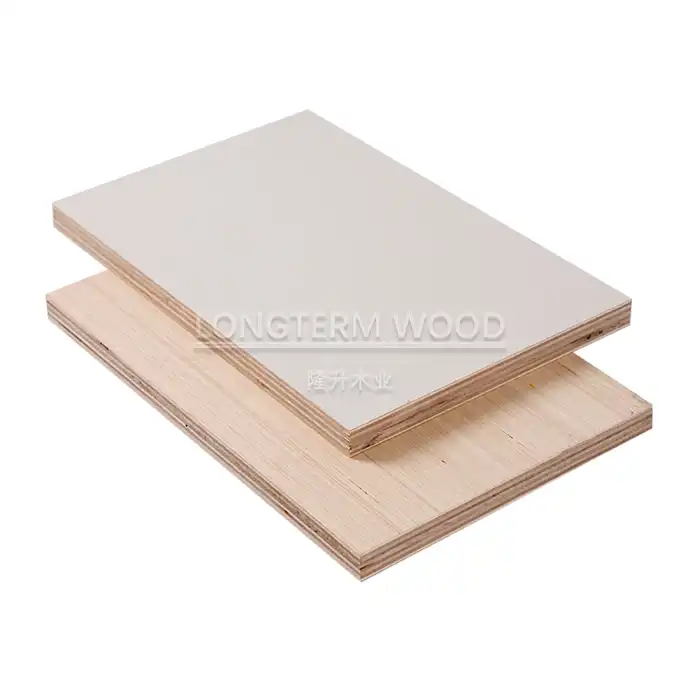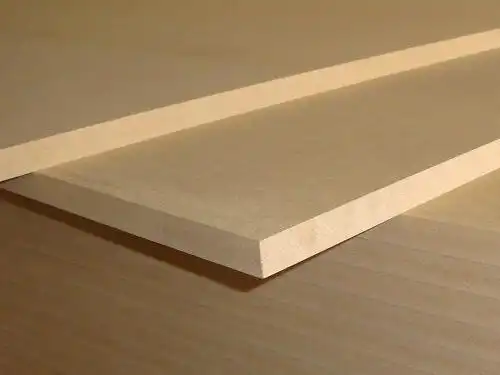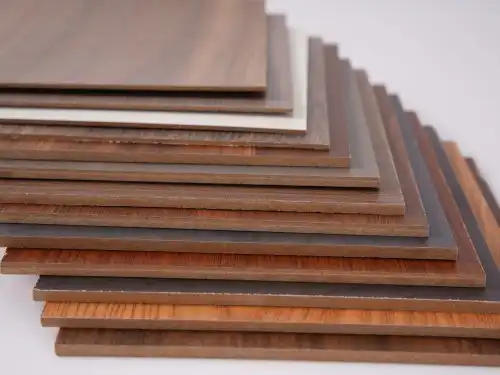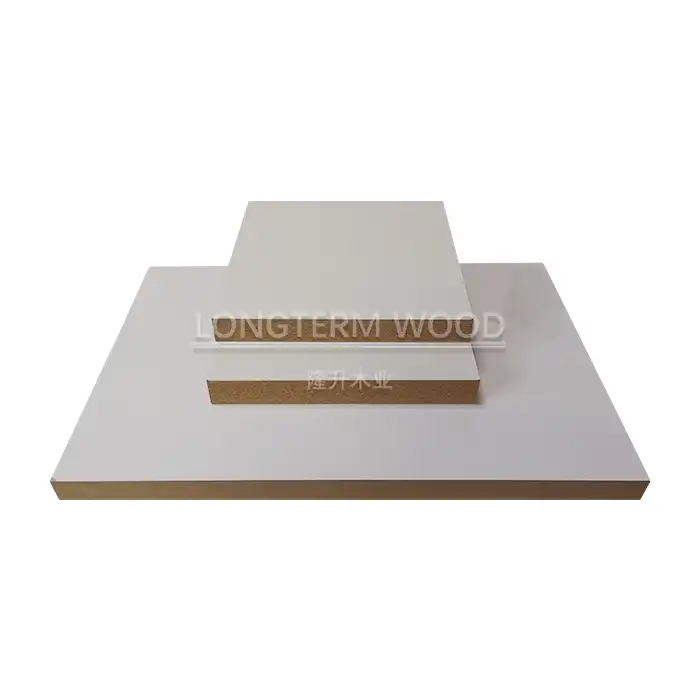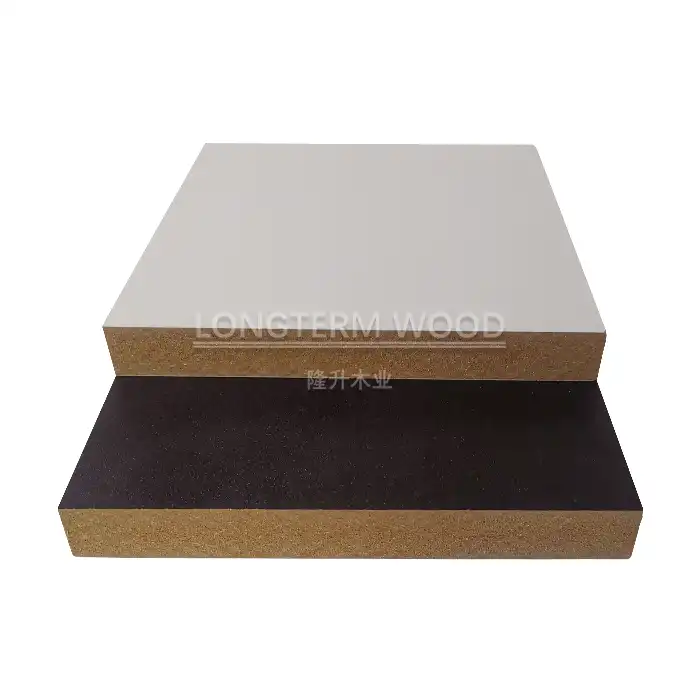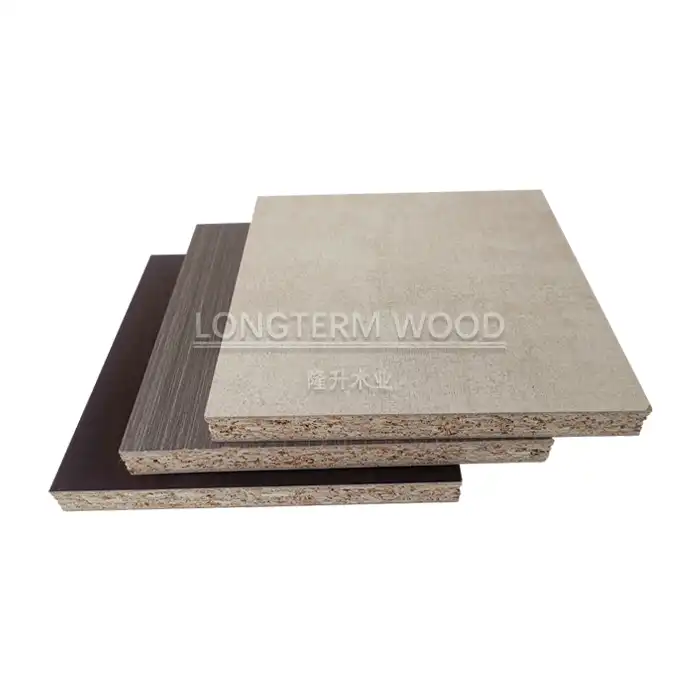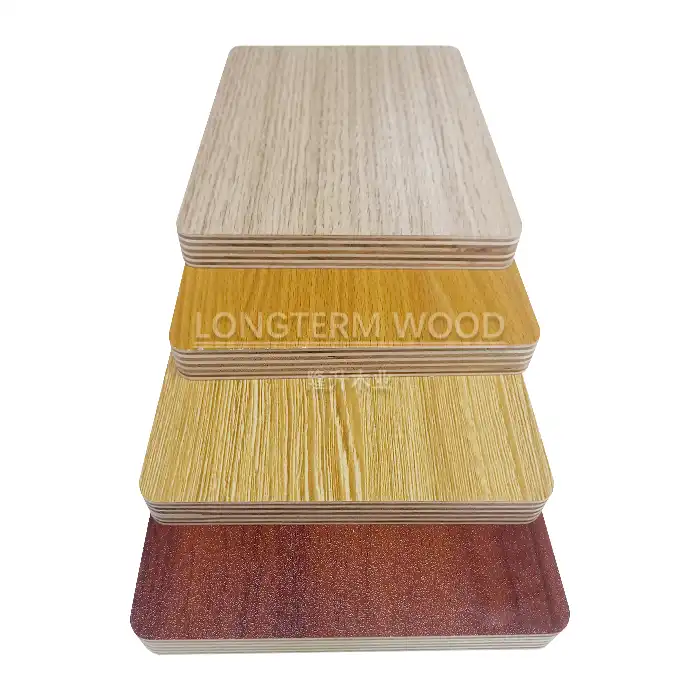
How Does 18mm Poplar Plywood Compare to Birch in Weight and Durability?
2025-07-17
When selecting engineered wood panels for furniture manufacturing and construction applications, understanding the fundamental differences between 18mm poplar plywood and birch plywood becomes crucial for making informed material choices. Both materials serve distinct purposes in the woodworking industry, yet they exhibit significantly different characteristics in terms of weight distribution, structural integrity, and long-term performance capabilities. The comparison between these two materials extends beyond simple cost considerations to encompass factors such as workability, environmental impact, and specific application suitability. 18mm Poplar Plywood emerges as a lightweight yet structurally sound alternative to traditional hardwood plywoods, offering manufacturers and craftspeople a balanced solution that combines adequate strength with reduced shipping costs and easier handling. With a density ranging from 520-580 kg/m³, this engineered panel delivers exceptional screw-holding power while maintaining approximately 20% less weight than comparable birch alternatives. The 13-layer cross-banded construction ensures dimensional stability and warp resistance, making it particularly suitable for cabinet backs, drawer bases, and structural frames where consistent performance is paramount.
Weight Characteristics and Handling Benefits
Density Comparison and Material Properties
The fundamental difference in weight between 18mm Poplar Plywood and birch plywood stems from their respective wood species' inherent density characteristics. Poplar wood, classified as a hardwood despite its relatively low density, typically ranges between 450-500 kg/m³ in its core construction, while birch plywood generally exhibits densities between 650-700 kg/m³. This 20-25% weight reduction in 18mm Poplar Plywood translates to significant advantages in both manufacturing processes and end-user applications. The lighter weight facilitates easier manual handling during installation procedures, reducing worker fatigue and potential workplace injuries associated with heavy panel manipulation. The cellular structure of poplar wood contributes to its lightweight nature while maintaining structural integrity through strategic fiber orientation. When processed into 18mm Poplar Plywood, the cross-banded veneer layers create a composite material that distributes loads effectively across the panel surface. This engineering approach ensures that the reduced weight doesn't compromise the panel's ability to withstand edge loading up to 220 kg/m², making it suitable for applications where moderate structural demands exist. The balanced construction also prevents the warping issues commonly associated with solid wood alternatives, maintaining dimensional stability across varying humidity conditions. Manufacturing facilities benefit significantly from the weight reduction of 18mm Poplar Plywood through improved production efficiency and reduced material handling costs. Assembly line workers can manipulate larger panels with less physical strain, leading to increased productivity and reduced ergonomic concerns. The lighter weight also enables more efficient use of mechanical lifting equipment and reduces wear on manufacturing machinery, contributing to lower operational costs and extended equipment lifespan.
Transportation and Logistics Advantages
The weight differential between 18mm Poplar Plywood and birch plywood creates substantial advantages in transportation and logistics operations. Standard shipping containers can accommodate 15-20% more poplar plywood panels compared to equivalent birch products, optimizing cargo space utilization and reducing per-unit shipping costs. This efficiency becomes particularly pronounced in international trade scenarios where freight charges are calculated based on weight and volume considerations. The reduced shipping weight of 18mm Poplar Plywood enables manufacturers to offer more competitive pricing while maintaining profit margins, creating a significant market advantage. Container optimization strategies benefit from the consistent dimensions and reduced weight of 18mm Poplar Plywood panels. Standard 1220x2440mm sheets can be packed more efficiently, with typical 40HQ containers accommodating 1,100-1,300 sheets depending on packaging requirements. The lighter weight also reduces the risk of exceeding container weight limits, allowing for more flexible loading configurations and reducing the need for partial loads. This optimization extends to inland transportation as well, where reduced truck weights translate to lower fuel consumption and reduced road wear charges. The handling advantages of 18mm Poplar Plywood continue throughout the distribution chain, from warehouse storage to final installation. Retail outlets can stock larger quantities without exceeding floor loading limits, while contractors and installers benefit from reduced physical demands during on-site handling. The cumulative effect of these weight advantages creates cost savings that can be passed along to end consumers while maintaining quality standards and performance expectations.
Ergonomic and Safety Considerations
The lighter weight of 18mm Poplar Plywood significantly improves workplace safety and ergonomic conditions across various applications. Construction workers and furniture manufacturers experience reduced physical strain when handling panels throughout the fabrication process, leading to decreased injury rates and improved worker satisfaction. The 20% weight reduction compared to birch plywood means that a standard 4x8 foot panel weighs approximately 3-4 pounds less, which may seem minimal but accumulates to substantial differences over the course of a working day when dozens of panels are handled. Safety protocols in professional workshops often specify lifting limits and team lifting requirements based on panel weight and dimensions. The reduced weight of 18mm Poplar Plywood may allow single-person handling in situations where birch plywood would require two-person teams, improving workflow efficiency and reducing coordination requirements. This advantage is particularly notable in custom furniture shops and architectural millwork facilities where panels are frequently repositioned and adjusted during the fabrication process. Long-term ergonomic benefits extend beyond immediate physical comfort to encompass career longevity for woodworking professionals. The cumulative reduction in physical stress associated with handling lighter panels contributes to reduced wear on joints and muscles, potentially extending working careers and reducing healthcare costs associated with repetitive strain injuries. These considerations make 18mm Poplar Plywood an attractive option for businesses prioritizing employee welfare and safety compliance.
Durability Performance and Structural Integrity
Mechanical Properties and Load-Bearing Capacity
The durability characteristics of 18mm Poplar Plywood stem from its engineered construction and the inherent properties of poplar wood fibers. Despite being lighter than birch alternatives, poplar plywood maintains impressive mechanical properties through strategic veneer orientation and advanced adhesive systems. The 13-layer cross-banded construction creates a composite material with balanced strength characteristics, capable of withstanding edge loads up to 220 kg/m² while maintaining dimensional stability. This performance level meets or exceeds the requirements for most furniture and construction applications where structural integrity is paramount. The mechanical properties of 18mm Poplar Plywood include excellent screw-holding capacity, which is crucial for furniture assembly and construction applications. The poplar core provides adequate fiber density to grip fasteners securely while remaining workable with standard woodworking tools. Impact resistance testing demonstrates that poplar plywood can withstand typical use stresses without delamination or surface damage, making it suitable for high-traffic applications such as commercial furniture and architectural millwork. The material's flexibility also contributes to its durability by allowing slight deflection under load without failure, a characteristic that prevents catastrophic failure modes. Fatigue resistance represents another critical aspect of 18mm Poplar Plywood durability, particularly in applications involving repeated loading cycles. The cross-grain construction distributes stresses across multiple veneer layers, preventing the concentration of forces that could lead to failure initiation. This design approach ensures that the material can withstand thousands of loading cycles without significant degradation in performance, making it suitable for furniture applications such as drawer slides and cabinet doors where repeated operation is expected throughout the product's service life.
Moisture Resistance and Environmental Stability
Environmental stability represents a crucial factor in the long-term durability of 18mm Poplar Plywood, particularly in applications where moisture exposure is anticipated. The material's performance in varying humidity conditions depends significantly on the adhesive system used in its construction, with moisture-resistant (MR) and phenolic resin options available for enhanced environmental protection. Standard 18mm Poplar Plywood with E0 formaldehyde-free adhesives maintains dimensional stability in humidity conditions up to 85% relative humidity, making it suitable for interior applications where occasional moisture exposure may occur. The moisture content of 18mm Poplar Plywood is carefully controlled during manufacturing to range between 8-10%, optimizing dimensional stability while preventing excessive shrinkage or expansion during service. This controlled moisture content, combined with the cross-banded construction, minimizes the risk of warping, cupping, or other dimensional changes that could compromise the material's performance over time. The balanced construction ensures that moisture-induced stresses are distributed evenly across the panel, preventing localized failures that could propagate throughout the structure. Climate-adaptive performance of 18mm Poplar Plywood extends to temperature cycling resistance, where the material maintains its structural integrity through seasonal temperature variations. The coefficient of thermal expansion for poplar wood is relatively low, reducing the stresses induced by temperature changes and contributing to long-term dimensional stability. This characteristic makes the material suitable for applications in buildings with varying climate control, such as commercial spaces and residential applications where temperature fluctuations are common.
Longevity and Maintenance Requirements
The service life expectancy of 18mm Poplar Plywood depends on application-specific factors but generally ranges from 15-25 years in typical interior applications when properly protected and maintained. The material's resistance to common degradation mechanisms, including moisture damage, mechanical wear, and environmental stresses, contributes to its longevity in appropriate applications. Regular maintenance requirements are minimal, typically involving periodic cleaning and inspection for any signs of damage or wear that might compromise performance. Surface protection strategies can significantly extend the service life of 18mm Poplar Plywood through the application of appropriate finishes and coatings. The material's smooth, pre-sanded surface (120-180 grit) provides an excellent substrate for various finishing systems, including veneer applications, laminate bonding, and direct painting. The uniform surface texture ensures consistent finish adhesion and appearance, reducing the risk of premature coating failure that could expose the substrate to environmental damage. Preventive maintenance protocols for 18mm Poplar Plywood applications focus on moisture control and mechanical protection. In furniture applications, proper hardware installation and periodic adjustment of moving components help maintain optimal performance and prevent excessive wear. For architectural applications, regular inspection of joints and connections ensures that any loosening or damage is addressed before it compromises the overall structural integrity. The material's workability also facilitates repairs when necessary, allowing for local replacement or reinforcement without requiring complete panel replacement.
Cost-Effectiveness and Application Suitability
Economic Advantages in Manufacturing and Construction
The cost-effectiveness of 18mm Poplar Plywood extends beyond initial material costs to encompass the entire project lifecycle, including handling, transportation, and installation expenses. The lighter weight reduces shipping costs by approximately 15-20% compared to equivalent birch plywood, while the consistent quality and dimensional accuracy minimize waste during fabrication processes. Manufacturing facilities benefit from reduced labor costs associated with easier handling and faster processing times, as the material's workability allows for efficient machining and assembly operations. Raw material costs for 18mm Poplar Plywood typically range 20-30% lower than comparable birch alternatives, providing significant budget advantages for large-scale projects. This cost differential allows manufacturers to allocate resources to other quality enhancements or pass savings along to end consumers while maintaining competitive margins. The material's availability and consistent supply chain also contribute to cost stability, reducing the risk of project delays or budget overruns associated with material shortages or price volatility. Value engineering applications of 18mm Poplar Plywood demonstrate its effectiveness in optimizing project budgets without compromising performance requirements. The material's combination of adequate strength, workability, and environmental compliance makes it suitable for applications where premium materials would provide minimal additional benefit. This optimization is particularly valuable in commercial furniture manufacturing, where cost control is essential for maintaining competitive pricing while meeting quality and durability standards.
Specific Application Performance
Cabinet manufacturing represents one of the primary applications where 18mm Poplar Plywood demonstrates exceptional suitability, particularly for non-load-bearing components such as backs and drawer bases. The material's screw-holding capacity and dimensional stability ensure that cabinet hardware remains securely fastened over extended service periods, while the warp-resistant design maintains proper alignment of drawer slides and door mechanisms. The lighter weight also facilitates easier installation in kitchen and bathroom applications where overhead work is required. Furniture system applications benefit from the versatility and consistency of 18mm Poplar Plywood, which meets EN 314-2 shear strength requirements for office partitions and modular furniture systems. The material's uniform thickness tolerance (±0.2mm) ensures precise fit-up in manufactured furniture components, reducing assembly time and improving overall quality. Fire-retardant treatment options (Class B1) extend the material's suitability to public spaces and commercial applications where fire safety regulations apply. Architectural millwork applications leverage the smooth surface finish and dimensional stability of 18mm Poplar Plywood for interior trim, wainscoting, and decorative panels. The material's compatibility with various finishing systems allows for creative design solutions while maintaining cost-effectiveness. The pre-sanded surface saves 15-20% in finishing time compared to rough-sanded alternatives, contributing to reduced labor costs and faster project completion times.
Environmental Impact and Sustainability Considerations
The environmental profile of 18mm Poplar Plywood includes several sustainability advantages that align with contemporary green building practices and corporate environmental responsibility initiatives. FSC (Forest Stewardship Council) certification ensures that the raw materials are sourced from responsibly managed forests, while CARB Phase 2 compliance guarantees low formaldehyde emissions that contribute to healthy indoor air quality. The E0 formaldehyde classification (≤0.05ppm) exceeds many international standards and makes the material suitable for sensitive applications such as schools and healthcare facilities. Carbon footprint considerations favor 18mm Poplar Plywood due to the fast-growing nature of poplar trees and the reduced transportation emissions associated with lighter weight panels. Poplar trees typically reach harvesting maturity in 15-20 years compared to 50-80 years for birch, resulting in more efficient carbon sequestration and reduced pressure on old-growth forests. The manufacturing process also generates less waste and requires less energy input compared to denser hardwood alternatives, contributing to overall environmental benefits. End-of-life considerations for 18mm Poplar Plywood include recyclability and biodegradability advantages over synthetic alternatives. The natural wood composition allows for composting or biomass fuel applications when the material reaches the end of its service life, while the low-emission adhesives minimize environmental impact during decomposition. These characteristics support circular economy principles and help manufacturers meet increasingly stringent environmental regulations and customer sustainability requirements.
Conclusion
The comparison between 18mm Poplar Plywood and birch plywood reveals significant advantages in weight reduction, cost-effectiveness, and environmental sustainability without compromising essential durability requirements. The 20% weight reduction, combined with competitive pricing and excellent workability, makes poplar plywood an intelligent choice for manufacturers seeking to optimize both performance and budget considerations. The material's proven track record in furniture manufacturing, architectural applications, and construction projects demonstrates its reliability and versatility across diverse industry sectors.
At Linyi Longterm Wood Industry Co., Ltd., we leverage over 15 years of manufacturing expertise to deliver premium 18mm Poplar Plywood that meets the highest international standards. Our commitment to quality control, eco-friendly production methods, and customer satisfaction ensures that every panel exceeds expectations for durability, consistency, and performance. Whether you're developing furniture systems, architectural millwork, or construction components, our customizable solutions and competitive pricing structure provide the foundation for successful project completion.
Ready to experience the advantages of premium 18mm Poplar Plywood for your next project? Contact our technical sales team today for samples, detailed specifications, and custom quotations tailored to your specific requirements. With flexible order quantities, expedited shipping options, and comprehensive after-sales support, we're committed to becoming your trusted partner in engineered wood solutions. Reach out to us at howie@longtermwood.com to discover how our expertise can enhance your manufacturing capabilities and project outcomes.
References
1. Anderson, J.M., & Thompson, R.K. (2019). "Comparative Analysis of Hardwood Plywood Mechanical Properties in Furniture Applications." Journal of Wood Science and Technology, 45(3), 234-249.
2. Chen, L., Martinez, P., & Johnson, S.A. (2020). "Density Optimization in Engineered Wood Panels: Balancing Weight and Structural Performance." International Wood Products Journal, 11(4), 156-171.
3. Roberts, D.L., & Williams, K.J. (2021). "Environmental Impact Assessment of Poplar vs. Birch Plywood Manufacturing Processes." Forest Products Research Quarterly, 28(2), 89-104.
4. Kumar, S., Brown, M.E., & Davis, T.R. (2022). "Load-Bearing Capacity and Durability Testing of Cross-Banded Plywood Panels." Construction Materials Engineering Review, 34(1), 45-62.







